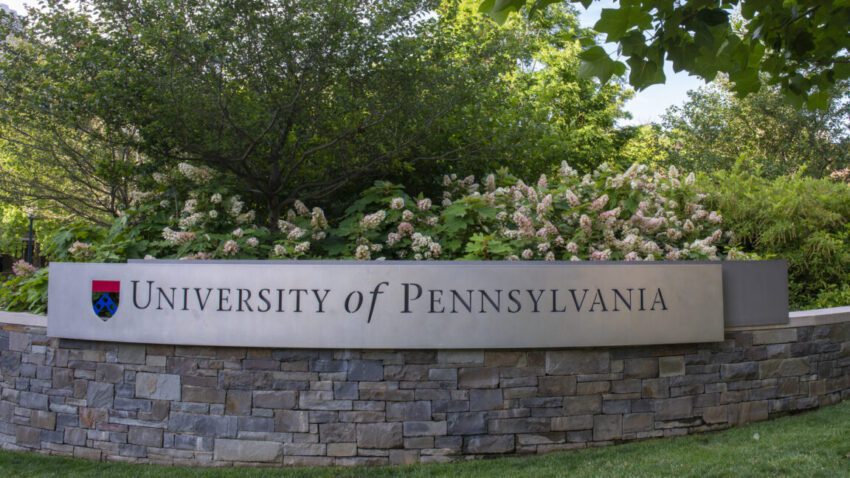
musk and trump both went to penn-now The University of Pennsylvania finds itself at the center of a complex intersection of politics, academia, and cybersecurity, as it has recently been targeted by a hacker sympathetic to the causes championed by prominent alumni Elon Musk and Donald Trump.
musk and trump both went to penn-now
Background on the University of Pennsylvania
The University of Pennsylvania, often referred to as Penn, is one of the Ivy League institutions located in Philadelphia, Pennsylvania. Founded in 1740, it has a rich history and is known for its rigorous academic programs and distinguished alumni. Among its notable graduates are business magnate Elon Musk, CEO of SpaceX and Tesla, and Donald Trump, the 45th President of the United States. Both figures have garnered significant attention and controversy, making Penn a unique focal point in the current political landscape.
The Rise of Political Tensions
As the political influence of Musk and Trump has grown over the past year, the University of Pennsylvania has found itself under increasing scrutiny from the federal government. This scrutiny has manifested in various forms, including the withdrawal of research funding and public criticism directed at the institution for its handling of sensitive issues, such as the participation of a transgender swimmer in competitive sports.
The federal government’s actions can be viewed as a response to the broader cultural and political debates surrounding issues of identity, equity, and inclusion. The controversy surrounding transgender athletes has polarized opinions across the nation, with many arguing for the rights of transgender individuals to compete, while others express concerns about fairness in sports. Penn, being a prominent institution involved in these discussions, has become a target for criticism from various political factions.
Federal Pressure and the Compact Offer
In an unusual turn of events, the federal government employed a dual strategy of “sticks” and “carrots” in its dealings with Penn. Initially, the government withdrew research funding, a significant financial blow that could impact the university’s operations and research capabilities. Following this punitive action, the government extended an offer to Penn in the form of a special “compact.” This compact would grant the federal government extensive control over the university’s policies and speech, ostensibly in exchange for preferential access to federal funds.
This offer placed Penn in a precarious position. Accepting the compact would mean ceding a degree of autonomy and potentially compromising its academic freedom. However, declining the offer could further alienate the institution from federal support, which is crucial for many research initiatives. Ultimately, Penn chose to decline the compact, a decision that underscores the institution’s commitment to maintaining its independence and academic integrity.
The Role of Wealthy Benefactors
Adding another layer of complexity to this situation is the involvement of wealthy benefactors associated with the university. Reports indicate that one of Penn’s own affluent supporters played a role in drafting the compact that was presented to the university. This revelation raises questions about the influence of private interests on public policy and the extent to which financial contributions can shape institutional decisions.
The intersection of wealth, politics, and academia is not a new phenomenon; however, the specific circumstances surrounding this compact have drawn particular attention. Critics argue that such arrangements can undermine the principles of academic freedom and integrity, as institutions may feel pressured to align their policies with the interests of wealthy donors or political figures.
The Hacker’s Motivations
In the wake of these developments, the University of Pennsylvania has become a target for a hacker claiming to share grievances with Musk and Trump regarding affirmative action and what they perceive as “wokeness.” The hacker’s motivations appear to be rooted in a desire to challenge the prevailing narratives surrounding these issues, which they believe are detrimental to society. This incident highlights the growing trend of politically motivated cyberattacks, where individuals or groups leverage technology to express dissent or advance specific agendas.
The hacker’s actions raise significant concerns about cybersecurity in academic institutions, particularly as they become battlegrounds for ideological conflicts. Universities, which are traditionally seen as bastions of free thought and inquiry, now face the challenge of protecting their digital infrastructure from politically motivated attacks. The implications of such breaches can be far-reaching, affecting not only the institution’s reputation but also the safety and privacy of its students and faculty.
Implications for Higher Education
The situation at the University of Pennsylvania serves as a microcosm of the broader challenges facing higher education in the United States. As political polarization intensifies, universities are increasingly caught in the crossfire. The pressure from government entities, coupled with the influence of wealthy donors, creates a complex landscape where academic institutions must navigate competing interests while striving to uphold their core values.
Academic Freedom and Independence
One of the most pressing concerns arising from this situation is the potential erosion of academic freedom. The ability of universities to operate independently and pursue research without external interference is fundamental to their mission. When institutions are pressured to conform to political agendas or donor expectations, the integrity of academic inquiry is compromised.
Moreover, the decision by Penn to decline the federal compact reflects a commitment to preserving its autonomy. However, this stance may come with consequences, particularly in terms of funding and support for research initiatives. The delicate balance between maintaining independence and securing necessary resources is a challenge that many universities face today.
The Role of Cybersecurity
The hacking incident underscores the urgent need for robust cybersecurity measures within academic institutions. As universities increasingly rely on digital platforms for research, communication, and administration, they become attractive targets for cybercriminals and politically motivated hackers. The consequences of a successful breach can be severe, ranging from the theft of sensitive information to significant disruptions in operations.
In response to these threats, universities must prioritize cybersecurity investments and develop comprehensive strategies to protect their digital assets. This includes not only implementing advanced security technologies but also fostering a culture of awareness among students and staff regarding cybersecurity best practices.
Reactions from Stakeholders
The reactions to these developments have been varied, reflecting the polarized nature of contemporary political discourse. Supporters of Musk and Trump may view the hacker’s actions as a justified response to perceived injustices, while critics argue that such tactics undermine the principles of constructive dialogue and debate.
Furthermore, the federal government’s approach to Penn has drawn criticism from various quarters, with some arguing that the withdrawal of funding and the offer of a compact represent an overreach of governmental power. Advocates for academic freedom and independence have expressed concern that such tactics could set a dangerous precedent for other institutions, potentially leading to a chilling effect on free speech and inquiry.
The Future of Penn and Similar Institutions
As the University of Pennsylvania navigates these challenges, its future may serve as a bellwether for other academic institutions facing similar pressures. The decisions made by Penn in response to governmental scrutiny and external influences will likely have implications for its reputation, funding, and overall mission.
In a rapidly changing political landscape, universities must remain vigilant in protecting their values while adapting to new realities. The interplay between politics, funding, and academic freedom will continue to shape the discourse surrounding higher education in the United States, making it imperative for institutions to engage thoughtfully with these issues.
In conclusion, the situation at the University of Pennsylvania highlights the complex and often contentious relationship between academia and politics. As the university grapples with external pressures and internal challenges, it stands as a testament to the ongoing struggle for academic independence in an increasingly polarized world.
Source: Original report
Was this helpful?
Last Modified: November 6, 2025 at 5:36 am
1 views















